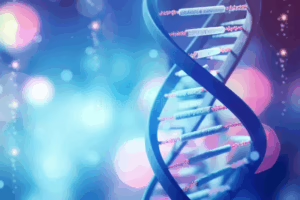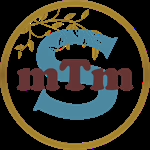Genomics-Driven Sports Massage: DNA-Based Personalized Therapy
 Precision recovery in sports massage is entering a new era where genomic insights tailor post-exercise interventions. Advances in molecular biology now reveal polymorphisms that modulate muscle damage, inflammatory cascades and connective-tissue resilience. This article reviews key genetic markers, explains the clinical impact of common polymorphisms, outlines non-invasive testing workflows and addresses the most pressing privacy and bioethical issues.
Precision recovery in sports massage is entering a new era where genomic insights tailor post-exercise interventions. Advances in molecular biology now reveal polymorphisms that modulate muscle damage, inflammatory cascades and connective-tissue resilience. This article reviews key genetic markers, explains the clinical impact of common polymorphisms, outlines non-invasive testing workflows and addresses the most pressing privacy and bioethical issues.
Genetic markers in muscle regeneration
During post-training recovery, synchronized regulation of inflammation, protein synthesis and connective-tissue remodelling is vital. The −174G/C variant in the IL6 promoter controls the magnitude of interleukin-6 release, crucial for activating satellite cells. The ACE I/D polymorphism alters circulating angiotensin-converting enzyme, influencing micro-perfusion and metabolic balance. The structural ACTN3 R577X polymorphism affects fast-twitch fibre stability; X-allele carriers often show reduced creatine-kinase surges and faster recovery compared with RR genotypes.
Connective tissue remodelling
The COL5A1 rs12722 variant modulates tendon collagen organization; the C-allele confers greater flexibility and faster fibrillar repair, whereas the T-allele increases stiffness and load on the musculo-tendinous unit. Myostatin (MSTN) variants such as K153R and rs11333758 attenuate the protein’s inhibitory action, enhancing hypertrophy and satellite-cell proliferation.
Massage responsiveness and polymorphisms
Empirical studies show that massage parameters can be refined via genotype. IL6 GG carriers benefit from shorter, anti-inflammatory strokes, while ACTN3 RR athletes profit from prolonged flushing phases. Flexible COL5A1 CC profiles respond well to cross-fascial techniques; TT genotypes favor longitudinal mobilization and progressive stretching to mitigate stiffness.
Practical genetic testing
Modern sports genetics employs saliva or blood for DNA extraction. PCR-based genotyping followed by bioinformatic interpretation yields individual reports detailing relevant variants and evidence tiers. Laboratory quality control includes duplicate assays and compliance with ISO-17025. Results do not dictate destiny; they indicate probabilistic modifiers of recovery.
Ethics and privacy
Genetic data are highly sensitive biometrics. Direct-to-consumer testing raises risks of discrimination and data breaches. Under regulations such as GDPR, processing requires explicit, revocable consent. Sport organizations need ethics oversight and must prohibit contract or team selection based on genetic screening. Gene-editing for performance enhancement remains on the World Anti-Doping Agency’s prohibited list.
Conclusion
Genomics-driven sports massage enables precision modulation of pressure, timing and inflammatory management. Incorporating genetic markers can streamline recovery strategies, but implementation must respect stringent ethical safeguards and rely on expert therapeutic judgement.
Bach Tamás
Complex Sports Regeneration and Mental Therapist
References
The Impact of ACTN3 Gene Polymorphisms on Susceptibility to Exercise-Induced Muscle Damage – L. Pimenta et al., 2021
ACE Insertion/Deletion Polymorphism and Plasma ACE Levels – D. Rigat et al., 1990
The COL5A1 Genotype Is Associated with Range of Motion – M. Collins et al., 2009
Skeletal Muscle-Derived Interleukin-6 and Its Roles – Y. Zhang et al., 2023
Myostatin Gene Variants and Muscle Recovery – J. Al Majidi et al., 2022
Ethical Aspects of Human Genome Research in Sports – A. Bojarczuk, 2024
Sport and Exercise Genomics Consensus Statement – N. Bouchard et al., 2020
Fedezzen fel többet mTm Stúdió-tól
Iratkozzon fel, hogy a legfrissebb bejegyzéseket megkapja e-mail-címére.
